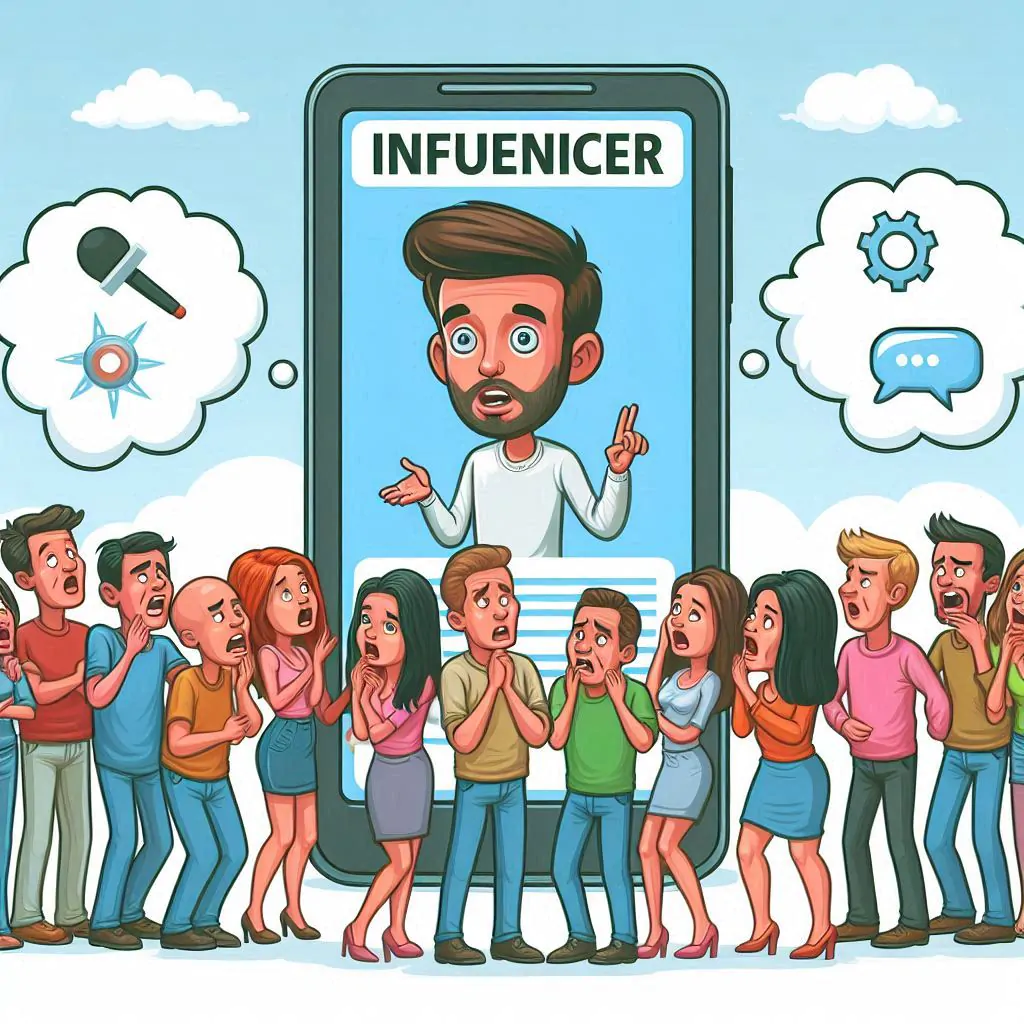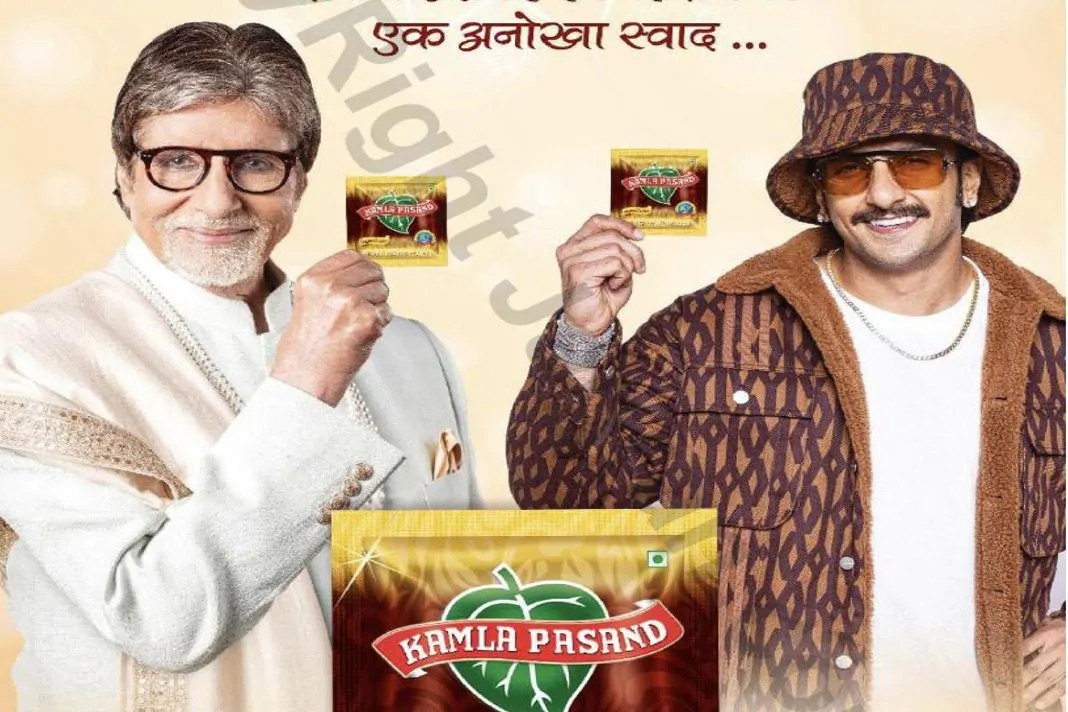Why Do We Idolize Influencers, Even When They’re Wrong?

In the digital age, social media platforms have revolutionized the way we connect, communicate, and consume content. This transformation has given birth to a new breed of celebrities: influencers. These individuals have harnessed the power of platforms like Instagram, YouTube, and TikTok to amass large followings and wield significant influence over their audiences.
What sets influencers apart is their ability to transform seemingly ordinary lives into aspirational narratives. Through carefully curated content, they present idealized versions of themselves, their lifestyles, and their experiences. This perceived authenticity and relatability create a powerful connection with followers, who often see influencers as peers rather than distant celebrities.
The influencer phenomenon has democratized fame, making it accessible to a wider range of individuals. This accessibility has fueled a culture where many aspire to achieve influencer status themselves. The promise of micro-fame, coupled with potential financial rewards through sponsorships and brand deals, has created a self-perpetuating cycle that continually reinforces the influencer culture.
Influencers have become powerful marketing tools, significantly impacting consumer behavior and purchasing decisions. Their recommendations carry weight, often more so than traditional advertising. This shift has led to the rise of influencer marketing as a multi-billion dollar industry, further cementing the role of influencers in modern culture.
While influencer culture has opened up new opportunities and connections, it also presents challenges. The line between authentic content and staged reality often blurs, raising questions about the responsibility influencers have to their followers. This dynamic sets the stage for potential misinformation and the uncritical acceptance of influencer opinions, even when they may be misguided or incorrect.
Why We’re Drawn to Influencers?
In today’s digital age, influencers have become modern-day celebrities, captivating our attention and shaping our perceptions. Their carefully curated social media presence often showcases glamorous lifestyles, exotic travels, and seemingly perfect relationships. This aspirational content taps into our innate desire for self-improvement and success, creating a powerful psychological draw.
Many individuals find themselves captivated by influencers who embody their ideal selves or represent lifestyles they aspire to achieve. This phenomenon, known as “parasocial relationships,” occurs when audiences develop one-sided emotional connections with media personalities, feeling a sense of intimacy despite the lack of real-world interaction.
Paradoxically, while influencers often portray idealized versions of life, their appeal also stems from their perceived authenticity and relatability. Unlike traditional celebrities, influencers often share more personal, behind-the-scenes content that makes them seem more approachable and “real” to their followers.
This sense of connection can be particularly potent for individuals seeking guidance or validation in various aspects of their lives. Influencers who openly discuss their struggles, failures, and personal growth journeys can resonate deeply with audiences, fostering a sense of community and shared experience.
The popularity of influencers is further amplified by the psychological principle of social proof. When we see large numbers of people following, liking, and engaging with an influencer’s content, it subconsciously signals to us that this person must be worth our attention and trust.
Additionally, the fear of missing out (FOMO) plays a significant role in our attraction to influencers. As they showcase exclusive experiences, products, or insights, followers may feel compelled to stay engaged to avoid being left behind or out of the loop in social circles or cultural conversations.
The Danger of Influencer Worship
In today’s digital age, influencers have become the new celebrities, captivating millions with their seemingly perfect lives. However, this idolization can lead to a dangerous disconnect from reality. The carefully curated content we see online often presents an unrealistic standard of beauty, success, and lifestyle that is unattainable for most. This illusion of perfection can foster feelings of inadequacy and low self-esteem among followers, particularly young and impressionable audiences.
One of the most significant risks of influencer worship is the spread of misinformation. Many influencers position themselves as experts in fields they have little to no formal training in, such as health, nutrition, or finance. Their large following gives them a platform to disseminate potentially harmful advice or promote questionable products. This pseudo-expertise can lead followers to make ill-informed decisions about their health, finances, or personal lives.
When we place influencers on pedestals, we often surrender our ability to think critically. Blind trust in an influencer’s opinions or recommendations can lead to a dangerous suspension of personal judgment. This erosion of critical thinking skills not only affects how we perceive influencer content but can also spill over into other areas of life, making us more susceptible to manipulation and less able to form independent opinions.
Excessive idolization of influencers can have severe consequences for mental health. Constant comparison to these seemingly perfect lives can lead to anxiety, depression, and a distorted self-image. The pressure to emulate influencers’ lifestyles or achieve their level of success can create unrealistic expectations and a cycle of disappointment. It’s crucial to remember that behind the polished posts lies a reality that’s often far less glamorous than it appears.
When Influencers Get It Wrong
In the age of social media, influencers wield unprecedented power to shape opinions and trends. However, this influence isn’t always coupled with expertise or accountability. When influencers spread misinformation or promote harmful practices, the consequences can be far-reaching and damaging.
Consider the case of wellness influencers promoting unproven health remedies or fitness gurus advocating for extreme diets. These misguided recommendations can lead followers down potentially dangerous paths, jeopardizing their physical and mental well-being. Similarly, financial advice from unqualified influencers may result in significant monetary losses for their trusting audience.
Social media algorithms often create echo chambers, reinforcing existing beliefs and limiting exposure to diverse perspectives. When influencers make mistakes or share inaccurate information, these closed ecosystems can amplify the errors, making it challenging for followers to recognize and correct misconceptions.
This phenomenon becomes particularly problematic when influencers tackle complex topics like politics, science, or global events without proper research or expertise. Their oversimplified or biased takes can contribute to the spread of conspiracy theories and deepen societal divides.
While traditional media outlets are held to certain standards of fact-checking and accountability, influencers often operate in a regulatory gray area. This lack of oversight, combined with the pressure to constantly produce content and maintain engagement, can lead to hasty posts and ill-considered opinions.
Moreover, the parasocial relationships that develop between influencers and their followers can make it difficult for audiences to critically evaluate the information they receive. The perceived intimacy and trust built through regular interaction may override skepticism, even when an influencer’s claims are questionable or outright false.
The Impact of Influencers on Society
In today’s digital age, influencers have become a powerful force shaping public opinion, consumer behavior, and cultural trends. Their reach extends far beyond social media platforms, permeating various aspects of our daily lives and society at large.
Influencers wield significant power in guiding purchasing decisions. Their product recommendations and lifestyle choices often translate into tangible market shifts. Brands have recognized this potential, increasingly allocating substantial portions of their marketing budgets to influencer partnerships. This symbiotic relationship between influencers and businesses has redefined traditional advertising paradigms, blurring the lines between authentic content and sponsored promotions.
Beyond commerce, influencers play a pivotal role in shaping cultural narratives. They often dictate fashion trends, popularize new forms of entertainment, and even influence political discourse. Their ability to rapidly disseminate ideas to vast audiences can spark social movements or shift public opinion on important issues. This cultural sway has elevated many influencers to celebrity status, further amplifying their impact on societal norms and values.
The rise of influencer culture has profound psychological effects on individuals, especially younger generations. The curated perfection often portrayed on social media can lead to unrealistic expectations and heightened feelings of inadequacy among followers. Moreover, the parasocial relationships formed with influencers can blur the lines between virtual connections and real-world relationships, potentially affecting social dynamics and interpersonal skills.
As influencers continue to shape our world, it becomes increasingly crucial to critically examine their impact and develop media literacy skills to navigate this new landscape responsibly.
Accountability for Influencers
In the digital age, influencers wield unprecedented power to shape opinions and behaviors. With millions of followers hanging on their every word, these social media stars have the ability to impact everything from consumer choices to political views. However, this immense influence also brings with it a critical need for accountability. As public figures with significant reach, influencers must recognize that their words and actions carry weight far beyond their immediate circle.
When influencers spread false information or promote harmful ideologies, the repercussions can be far-reaching. Their devoted followers may accept misleading claims without question, leading to the rapid spread of misinformation. This can have serious real-world consequences, from health risks due to unproven medical advice to social unrest fueled by conspiracy theories. The COVID-19 pandemic highlighted this issue, as some influencers used their platforms to spread dangerous myths about the virus and vaccines.
To address these concerns, there is a growing call for stricter ethical guidelines and oversight for influencers. This could include:
- Mandatory disclosure of paid partnerships and sponsorships
- Fact-checking requirements for health and science-related content
- Clear consequences for repeatedly sharing false information
While influencers should maintain creative freedom, they must also recognize their role as de facto public figures and the responsibilities that come with it. By holding influencers to higher standards of accuracy and transparency, we can harness the positive potential of their platforms while mitigating the risks of unchecked influence.
Recognizing Influencer Bias
In the age of social media, influencers have become powerful voices shaping public opinion. However, it’s crucial to recognize that these individuals, despite their reach, are not immune to bias. Understanding and identifying these biases is key to consuming influencer content critically and responsibly.
Influencers may exhibit various forms of bias, often unconsciously. Confirmation bias leads them to seek information that supports their existing beliefs, while sponsorship bias can result from financial relationships with brands. Recency bias may cause them to overemphasize recent events or trends, potentially skewing their perspective.
Social media algorithms often create echo chambers, reinforcing influencers’ existing views and potentially amplifying their biases. This phenomenon can lead to a narrow worldview, limiting the diversity of opinions and information shared with followers.
To navigate influencer content effectively, consumers should:
- Fact-check claims independently
- Seek diverse perspectives on topics
- Be aware of potential conflicts of interest
- Consider the influencer’s expertise and qualifications
By employing these strategies, followers can benefit from influencers’ insights while maintaining a balanced and informed perspective.
Enhancing media literacy is crucial in recognizing influencer bias. Educational initiatives focusing on critical thinking and digital literacy can empower individuals to evaluate information sources more effectively, including content from influencers.
Understanding influencer bias doesn’t mean dismissing all influencer content. Rather, it enables followers to engage more thoughtfully with the information presented, fostering a more nuanced and balanced online discourse.
Building Healthy Relationships with Influencers
In today’s digital landscape, influencers have become an integral part of our online experience. While it’s natural to admire and follow these charismatic figures, it’s crucial to maintain a balanced perspective and build healthy relationships with them. This section explores strategies for engaging with influencers responsibly and mindfully.
When interacting with influencer content, it’s essential to approach it with a discerning eye. Rather than blindly accepting everything at face value, consumers should:
- Fact-check claims and information
- Consider multiple perspectives on a topic
- Recognize the difference between sponsored content and genuine recommendations
By cultivating critical thinking skills, followers can better navigate the complex world of influencer marketing and make informed decisions.
While influencers often foster a sense of intimacy with their audience, it’s important to remember that these relationships are primarily one-sided. To maintain healthy boundaries:
- Limit time spent consuming influencer content
- Avoid comparing one’s life to the curated images presented online
- Recognize that influencers are human and prone to mistakes
By establishing these boundaries, individuals can enjoy influencer content without becoming overly invested or dependent on these virtual connections.
To counteract the echo chamber effect often created by influencer circles, it’s beneficial to:
- Follow a variety of influencers with different viewpoints
- Engage with content from experts in relevant fields
- Seek out information from traditional media sources
This approach helps create a well-rounded understanding of topics and reduces the risk of becoming overly reliant on a single influencer’s opinions or advice.
FAQs
The idolization of influencers, despite their fallibility, reflects deeper societal trends and psychological needs. As social media continues to shape our cultural landscape, critical thinking and media literacy become increasingly vital. While influencers can inspire and entertain, it is crucial to maintain a balanced perspective, recognizing their humanity and potential biases. By fostering a more discerning approach to online content consumption, individuals can harness the benefits of influencer culture while mitigating its pitfalls. Ultimately, the responsibility lies with both content creators and consumers to cultivate a healthier, more authentic digital ecosystem that values substance over spectacle and truth over trending topics.


